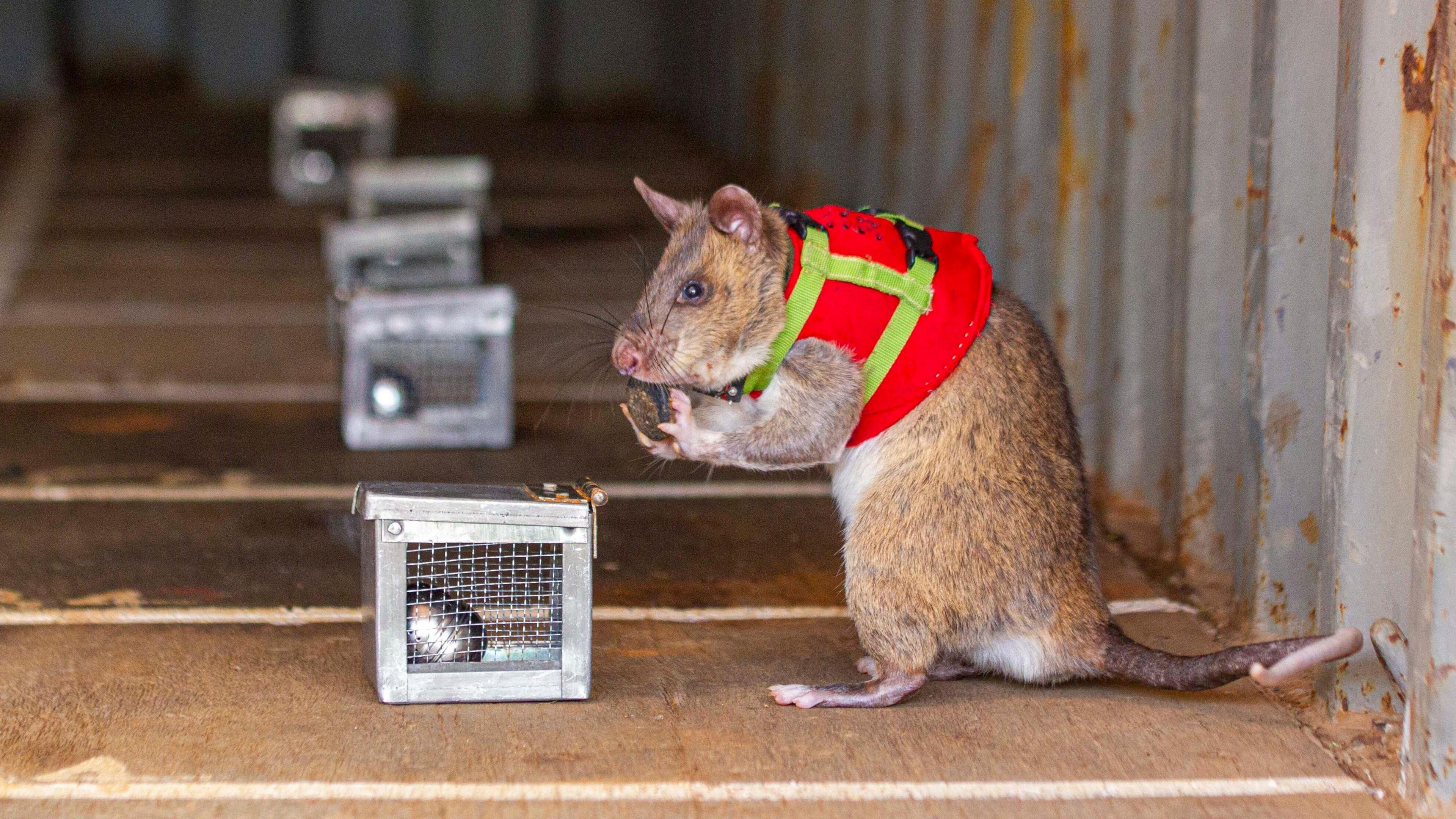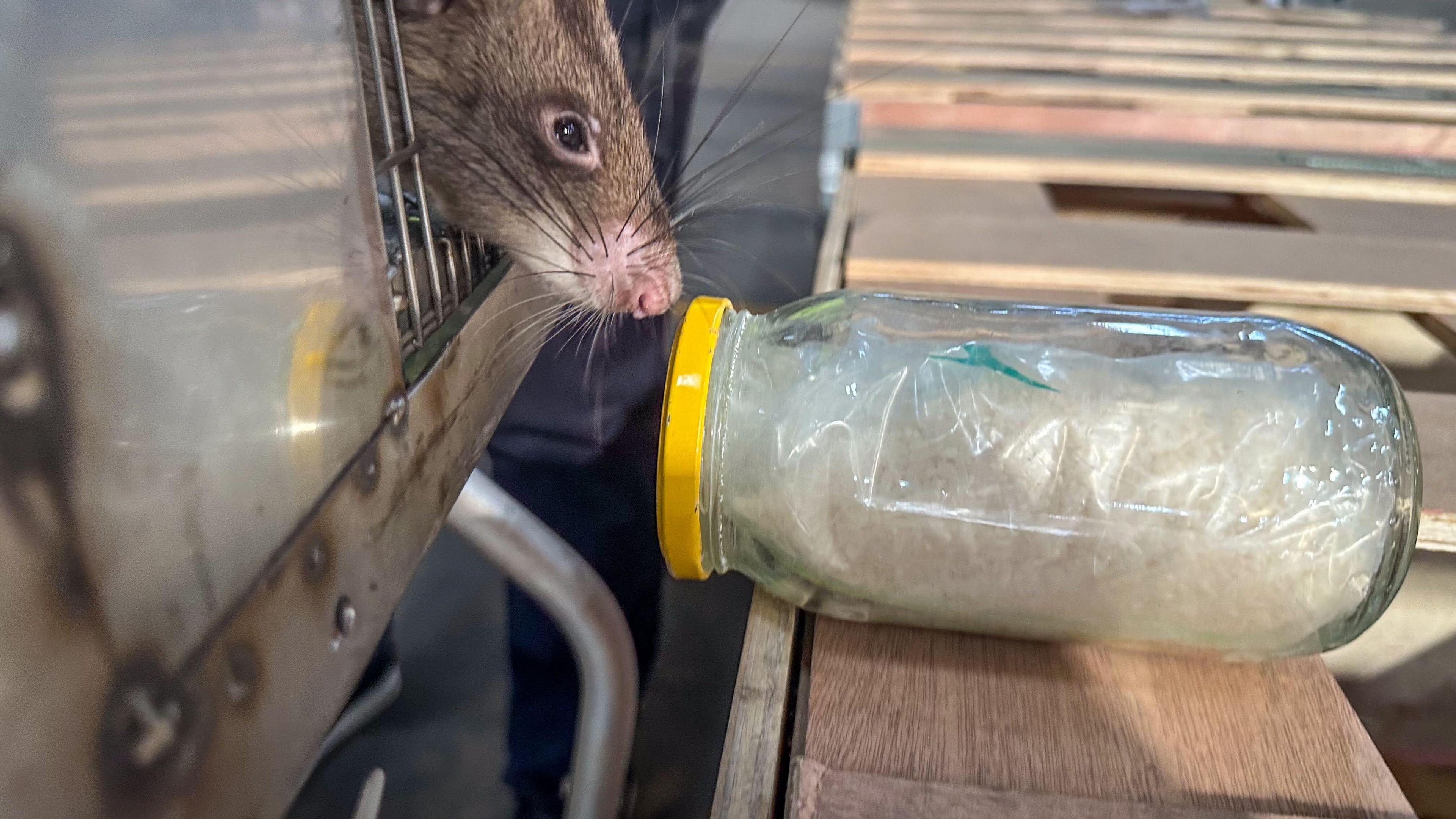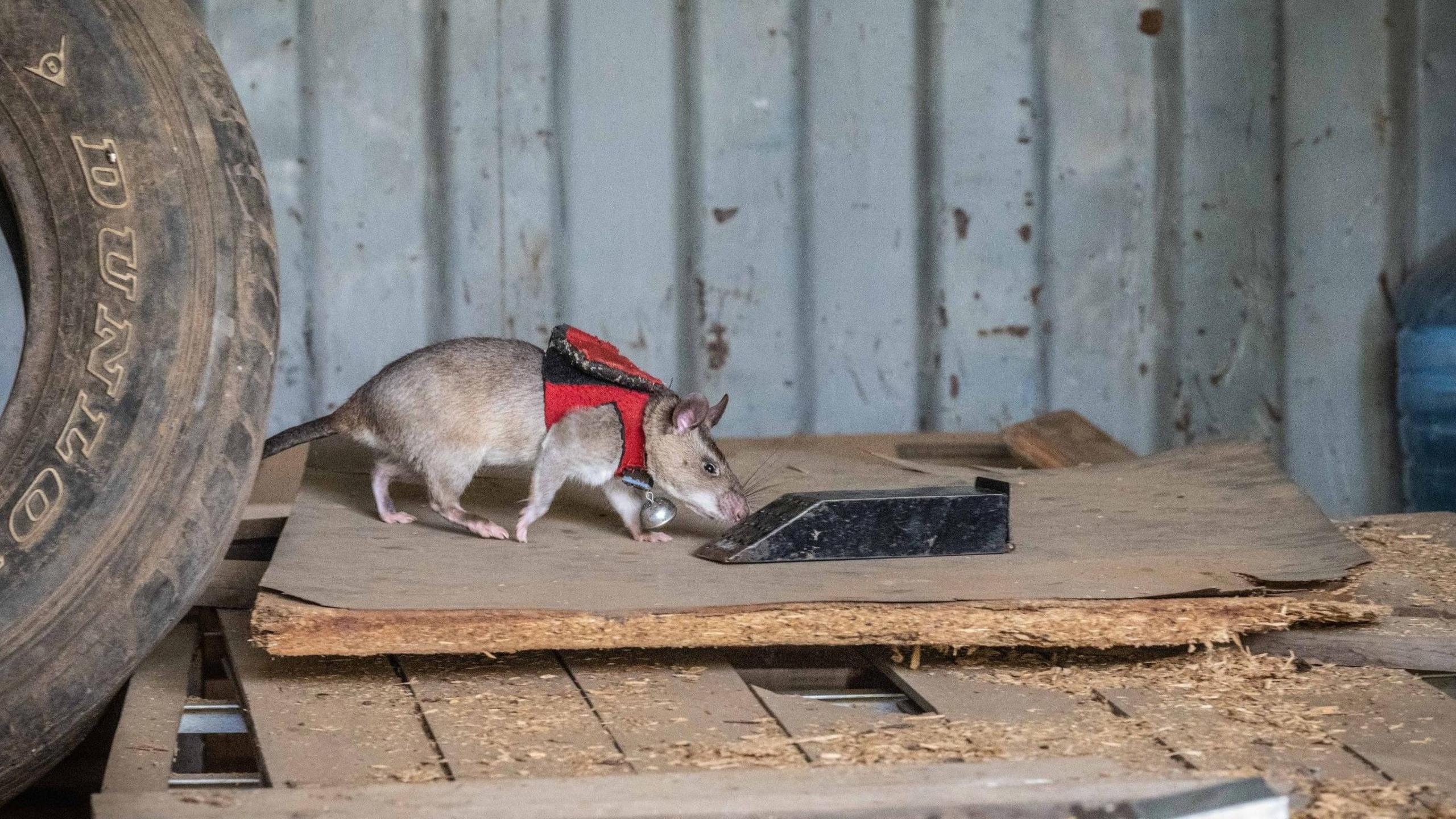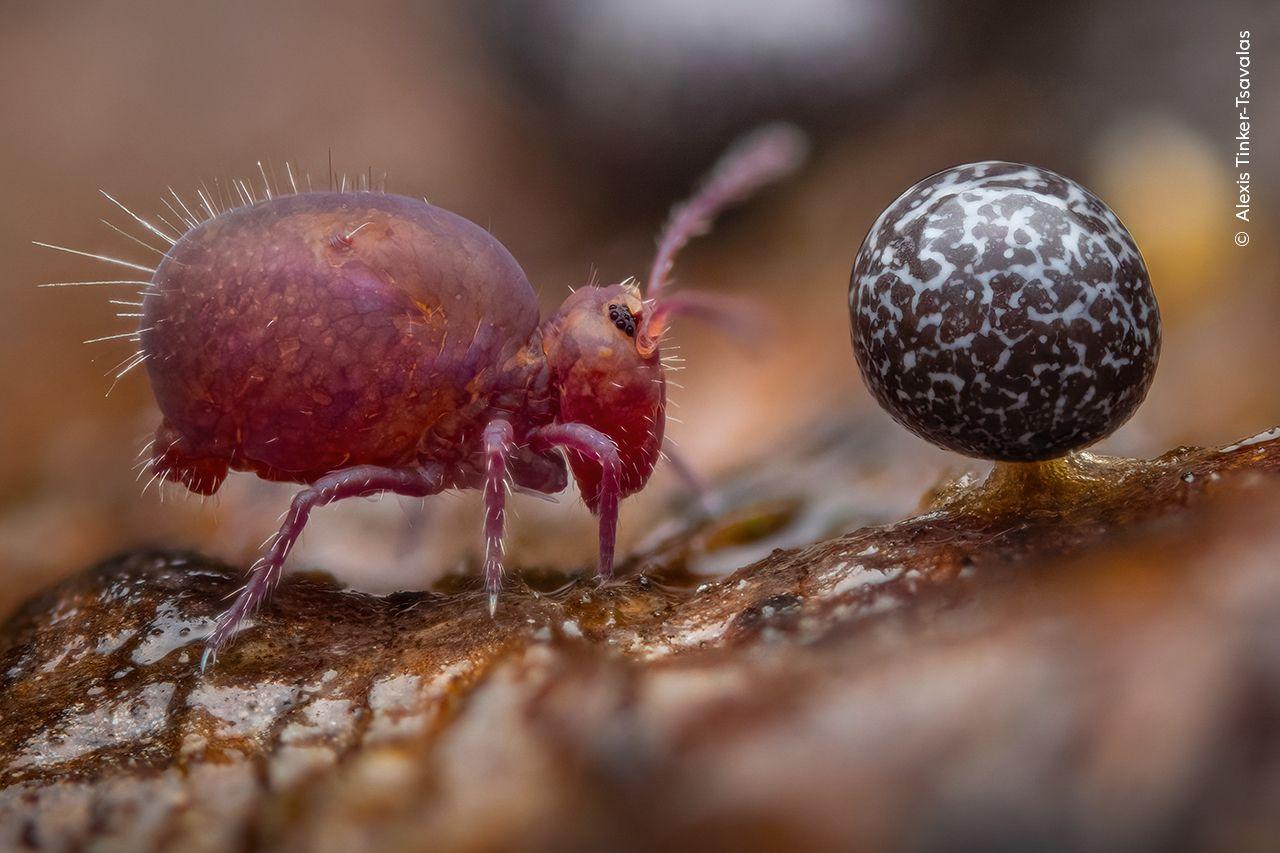Rats in jackets sniff out the illegal wildlife trade

- Published
Don't be 'rat-tled' by their look, these hero rodents have powerful noses that have the potential to help protect wildlife.
Poaching and illegal wildlife trade - where animals or animal parts are sold around the world - is blamed for putting lots of animals at risk.
It threatens entire species as well as the ecosystem as a whole.
But new research by APOPO has found these cat-sized rodents can be trained to sniff out illegal wildlife products like elephant tusks, rhino horns and pangolin scales.
APOPO says the rats can provide hope in the fight against wildlife trafficking.
Protecting our wildlife
Can tech help protect global wildlife?
- Published9 December 2019
Is enough being done to look after wild animals?
- Published19 October 2018
Five hard-working animals with weird jobs
- Published25 September 2017

Species at risk include tigers which are killed for their skin and bones and elephants which are poached for their ivory tusks.
Rhinos, sharks, seahorses and pangolins are also traded. Pangolins are the most trafficked animal in the world and there are now huge concerns about the number of them left.
While dogs are successfully used already to sniff out illegal products, according to APOPO there are bonuses to having a rat on hand to help in certain scenarios, for example unlike a dog, they can move easily through a packed shipping container.

The rats pull on the little ball you can see around their neck which tells their handlers that they've found something
Rats are very intelligent and take about a year to be trained.
APOPO have already successfully trained them to use their noses to find landmines, people among rubble in natural disasters, and medical diseases like tuberculosis.
They get lots of playtime during their training schedule and get yummy treats as a reward while they're learning.
Once they're fully trained and they identify a target, they pull on the ball around their neck which triggers a beeping sound to alert their handler - how clever!
More like this
- Published16 October 2024

- Published9 October 2024

- Published15 August 2024
